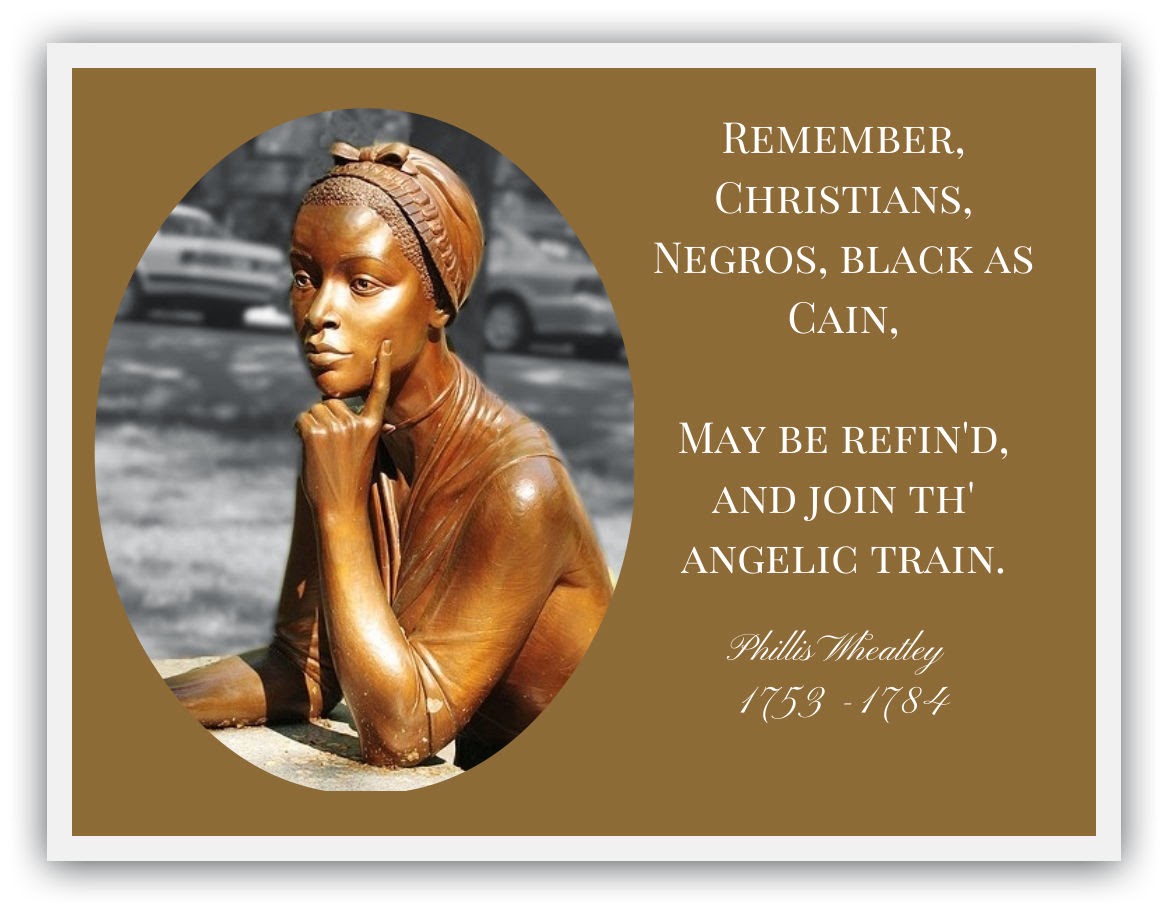May 8,
1753 to December 5, 1784
Phillis was born in Senegambia West Africa a free African
child and at the age of seven sold into slavery and transported to North
America where she was sold to the Wheatley family as the personal servant to
Mrs. Wheatley.
As a house slave and Mrs. Wheatley’s personal servant
Phillis had what was considered a privileged life and Mrs. Wheatley
taught Phillis to read and write after recognizing an intelligence and
creative ability believed impossible in Blacks.
By 1771 Phillis had distinguished herself as a poet and an oddity
given her status as an African slave having written up to 28 poems. As a result she was allowed to travel with the
Wheatley’s son to London England where she was invited to meet members of the British Upper
Class, many of whom were notable abolitionists.
While in England the Countess of Huntingdon
provided the funding to publish a volume of Phillis’ poems, “Poems on Various
Subjects, Religious and Moral” was published in 1773.
As was the tradition Phillis was the first African American Woman to be published. Phillis was published under the name Wheatley as slave were known by the
last name of their owners.
John Wheatley left instructions
that Phillis as his property be emancipated upon his death. Phillis’ freedom rather than being the beginning of a better life thrust her into a life of
poverty and physical hardship, no longer living within the Wheatley household
she was forced to make her own way.
In April
1778 she married John Peters and they are reported to have had up to three
children who all died in infancy. In
1784 Peter’s was imprisoned for none payment of debt and the same year Phillis
died.
 |
| Click here to link to Phillis' Poems |
Phillis’ intelligence and notoriety
as a published poet acted as an early catalyst for the antislavery movement. New discoveries of her early “poems, [and] letters associate her with the
eighteenth-century black abolitionists” http://www.poetryfoundation.org/bio/phillis-wheatley
Phillis is a woman of history. She was supported to develop her skills,
encourage to step outside of the known boundaries of her class by her white owner and she took
risks writing poetry that addressed
the equality of black slaves to an all white audience.
On Being Brought from Africa to AmericaBy Phillis Wheatley'Twas mercy brought me from my Pagan land,Taught my benighted soul to understandThat there's a God, that there's a Saviour too:Once I redemption neither sought nor knew.Some view our sable race with scornful eye,"Their colour is a diabolic die."Remember, Christians, Negros, black as Cain
To read more about Phillis Wheatley please follow these links
Grandma Snyder
©2013-2015 twosnydergirls





No comments:
Post a Comment